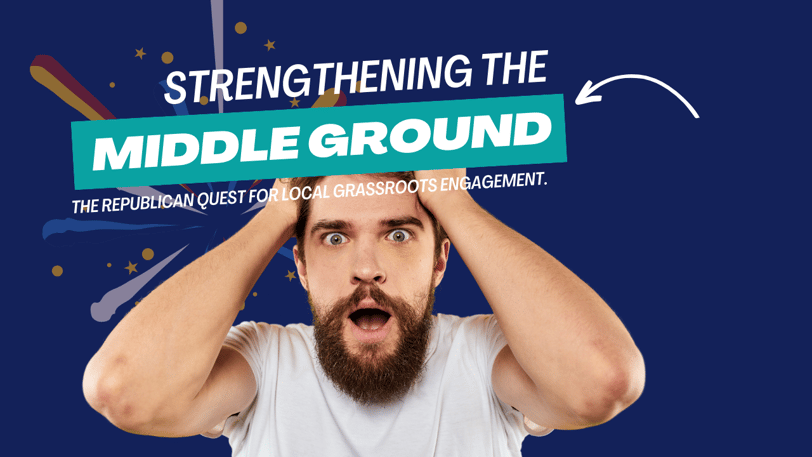Strengthening the Middle Ground:
The Republican Quest for Local Grassroots Engagement.
9/23/20232 min read


Introduction
In the evolving political landscape, there is a growing need for the Republican Party to reconnect with the middle ground and fortify its ties with local grassroots groups. Embracing a centrist approach and fostering local engagement can help the party address diverse community needs, facilitate constructive dialogue, and build a solid foundation for future success.
The Importance of the Middle Ground
Diverse Perspectives: The middle ground represents a spectrum of voices and perspectives, offering a balanced approach to governance and policy-making. Engaging with this segment allows the party to understand the nuanced concerns and aspirations of a broader population.
Building Bridges: Focusing on centrist values and principles helps in building bridges across the partisan divide, fostering unity and collaborative solutions to the nation’s challenges.
Electoral Success: Capturing the middle ground is crucial for electoral success, as independent and moderate voters often hold the key to swing states and competitive districts.
Empowering Local Grassroots Groups
Community Insights: Local grassroots groups provide invaluable insights into community needs, aspirations, and challenges. Engaging with these groups enables the party to develop policies that resonate with the local population and address specific issues.
Strengthening the Base: Grassroots organizations play a pivotal role in mobilizing support, organizing events, and promoting party values at the community level. Strengthening relationships with these groups helps in building a robust and active party base.
Enhanced Voter Outreach: Collaborating with grassroots organizations enhances voter outreach and engagement, facilitating direct communication with constituents and encouraging civic participation.
Strategies for Engagement
Open Dialogue: Hosting town halls, community forums, and roundtable discussions to facilitate open dialogue, listen to diverse viewpoints, and address concerns.
Policy Development: Collaborating with local groups to develop and refine policies that reflect community needs and aspirations, ensuring that the party’s agenda is inclusive and representative.
Volunteer Networks: Building extensive volunteer networks to support grassroots initiatives, campaign efforts, and community engagement.
Educational Initiatives: Investing in educational initiatives to raise awareness of Republican values, principles, and policy proposals, fostering informed political discourse.
Conclusion
For the Republican Party, focusing on the middle ground and nurturing relationships with local grassroots groups are essential steps towards building a more inclusive and representative political platform. By embracing a balanced approach, fostering community engagement, and developing policies that resonate with diverse constituencies, the party can strengthen its foundation and navigate the path to future success with the support and insights of the communities it serves.
